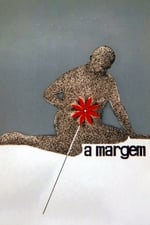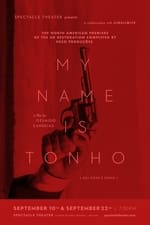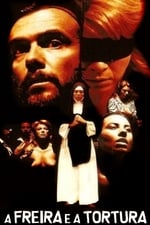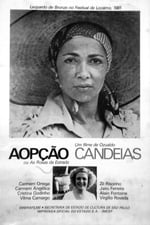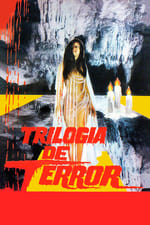Informations personnelles
Célèbre pour Réalisation
Apparitions connues 50
Genre Homme
Date de naissance 5 novembre 1918
Date de décès 8 février 2007 (88 ans)
Lieu de naissance Cajobi, São Paulo, Brazil
Alias
- Ozualdo R. Candeias
Score de contenu
100
Superbe ! Cette fiche semble complète !
Connectez-vous afin de
signaler un problème.
Biographie
Ozualdo Ribeiro Candeias (1918 – 2007) was a Brazilian screenwriter, editor, photographer, director of photography, actor, producer and filmmaker.
Candeias is believed to have been born in 1918, but was only registered in the town of Cajobi, in the state of São Paulo, in 1922. He worked in a number of jobs, from aeronautics sergent to truck driver. A self-taught filmmaker, he released his debut feature "A Margem" in 1967, a starting point for the Cinema Marginal movement (also dubbed Cinema de Invenção), which would forever change paradigms in the history of Brazilian cinema. Longing for distribution company for it, he turned to the Boca do Lixo, a block in downton São Paulo then known as a stronghold to independant filmmakers. A passionate advocate for the Boca, he paid homages to it in both short and feature films.
His work is composed of numerous shorts and feature-length films, mostly depiciting life of communities either in urban or rural Brazil dealing with life in poverty. Among the genres Candeias has worked with are horror, western, exploitation and drama, although his films are hard to categorize due to their experimental nature. Although a few of his features met commercial success, such as 1969s "Meu Nome É Tonho", Candeias' films had a notoriously small audience during his lifetime. "Caçada Sangrenta" (1974) and "A Freira e a Tortura" (1983), two of his features aimed at a more conventional public, emerged from a deal with producer/actor David Cardoso, who had previously starred in "A Herança" (1971), Candeias' take on Hamlet reimagined as taking place in rural Brazil. Candeias' picture "Aopção ou As Rosas da Estrada" (1981) won the Bronze Leopard at the Locarno Film Festival. His last feature, "O Vigilante" (1992), won the Special Jury Award at the 25th Brasília Film Festival, but was never distributed at the theatres.
Ozualdo Ribeiro Candeias (1918 – 2007) was a Brazilian screenwriter, editor, photographer, director of photography, actor, producer and filmmaker.
Candeias is believed to have been born in 1918, but was only registered in the town of Cajobi, in the state of São Paulo, in 1922. He worked in a number of jobs, from aeronautics sergent to truck driver. A self-taught filmmaker, he released his debut feature "A Margem" in 1967, a starting point for the Cinema Marginal movement (also dubbed Cinema de Invenção), which would forever change paradigms in the history of Brazilian cinema. Longing for distribution company for it, he turned to the Boca do Lixo, a block in downton São Paulo then known as a stronghold to independant filmmakers. A passionate advocate for the Boca, he paid homages to it in both short and feature films.
His work is composed of numerous shorts and feature-length films, mostly depiciting life of communities either in urban or rural Brazil dealing with life in poverty. Among the genres Candeias has worked with are horror, western, exploitation and drama, although his films are hard to categorize due to their experimental nature. Although a few of his features met commercial success, such as 1969s "Meu Nome É Tonho", Candeias' films had a notoriously small audience during his lifetime. "Caçada Sangrenta" (1974) and "A Freira e a Tortura" (1983), two of his features aimed at a more conventional public, emerged from a deal with producer/actor David Cardoso, who had previously starred in "A Herança" (1971), Candeias' take on Hamlet reimagined as taking place in rural Brazil. Candeias' picture "Aopção ou As Rosas da Estrada" (1981) won the Bronze Leopard at the Locarno Film Festival. His last feature, "O Vigilante" (1992), won the Special Jury Award at the 25th Brasília Film Festival, but was never distributed at the theatres.
Réalisation
|
||||||||||||
|
||||||||||||
|
||||||||||||
|
||||||||||||
|
||||||||||||
|
||||||||||||
|
||||||||||||
|
||||||||||||
|
||||||||||||
|
||||||||||||
|
||||||||||||
|
||||||||||||
|
||||||||||||
|
||||||||||||
|
||||||||||||
|
||||||||||||
|
||||||||||||
|
Interprétation
|
||||||
|
||||||
|
||||||
|
||||||
|
||||||
|
||||||
|
||||||
|
||||||
|
||||||
|
||||||
|
||||||
|
||||||
|
||||||
|
||||||
|
||||||
|
Écriture
|
||||||
|
||||||
|
||||||
|
||||||
|
||||||
|
||||||
|
||||||
|
||||||
|
||||||
|
||||||
|
||||||
|
||||||
|
Image
|
|||||||||
|
|||||||||
|
|||||||||
|
|||||||||
|
|||||||||
|
|||||||||
|
|||||||||
|
|||||||||
|
|||||||||
|
Production
|
|||
|
|||
|
|||
|
|||
|
Montage
|
|||
|
|||
|
|||
|
|||
|
Équipe technique
|
|||
|
|||
|
Artistique
|


